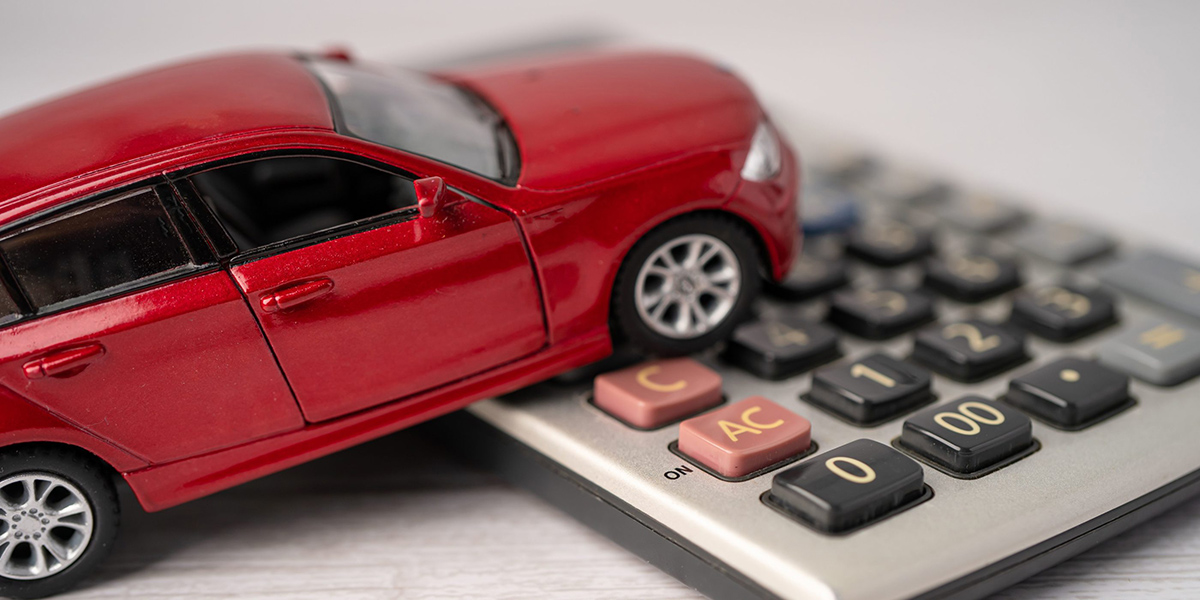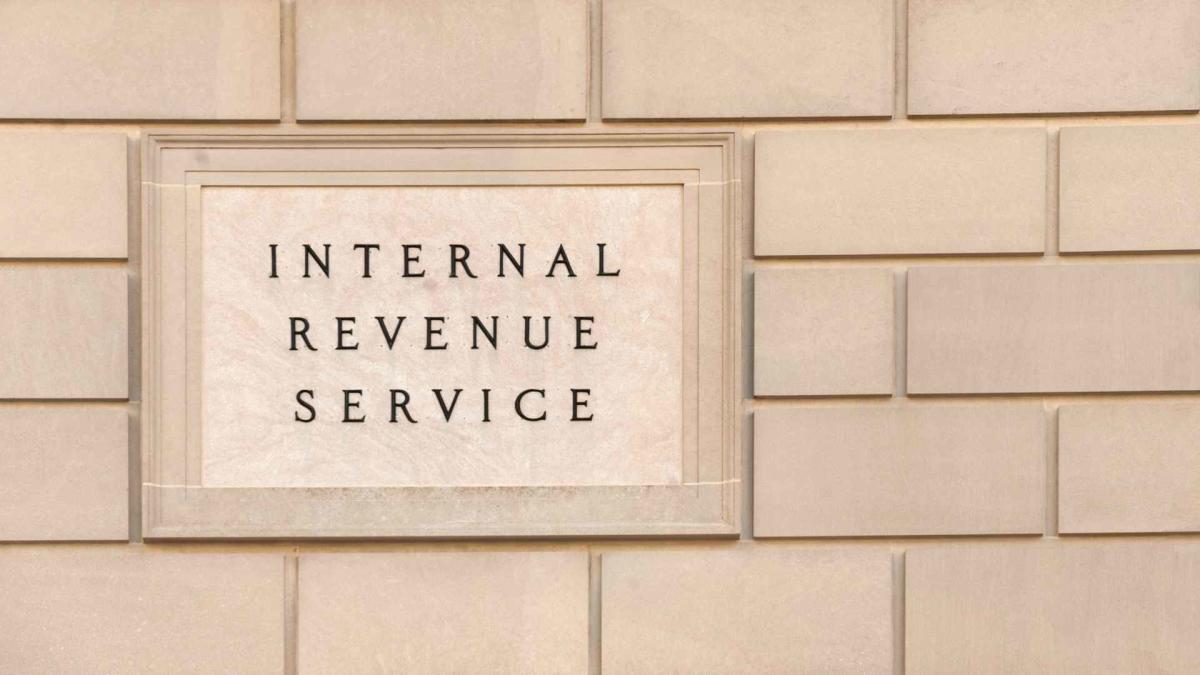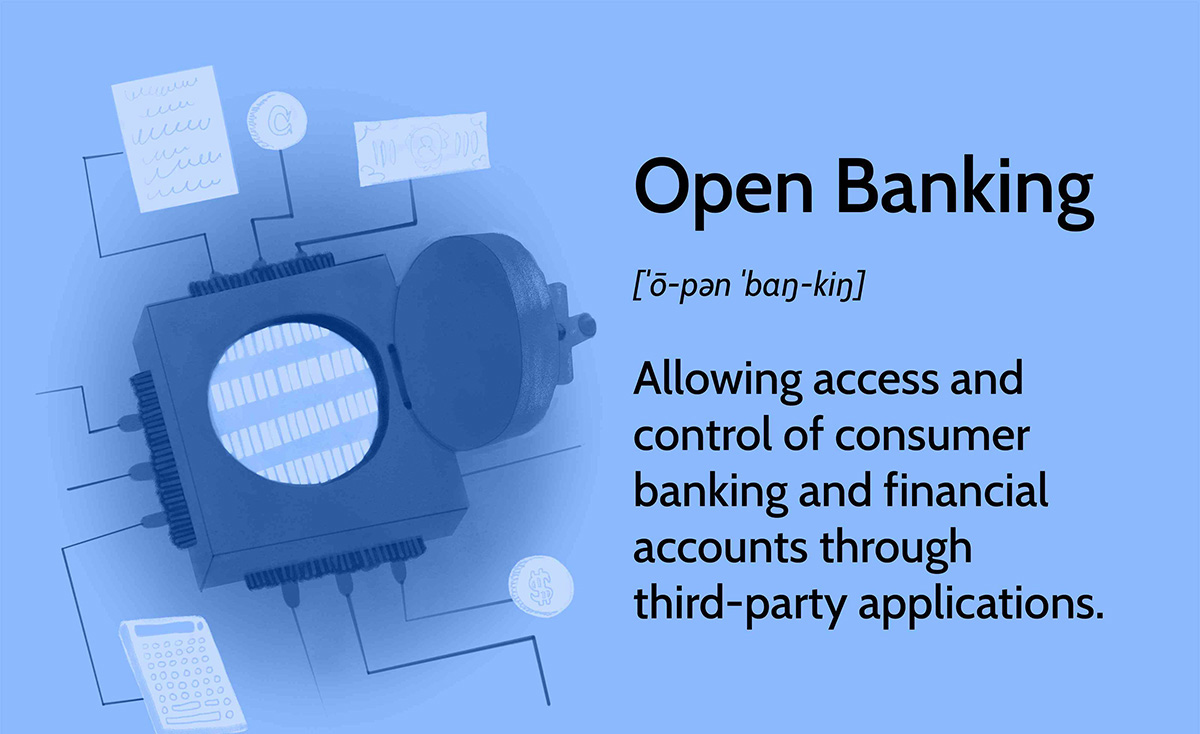Home>Finance>How To Get A New Car With Bad Credit And No Cosigner


Finance
How To Get A New Car With Bad Credit And No Cosigner
Published: January 12, 2024
Get the financing you need to buy a new car, even with bad credit and no cosigner. Our expert finance team can help you secure an auto loan that works for you.
(Many of the links in this article redirect to a specific reviewed product. Your purchase of these products through affiliate links helps to generate commission for LiveWell, at no extra cost. Learn more)
Table of Contents
- Introduction
- Understanding Bad Credit and the Impact on Car Financing Options
- Exploring Options for Getting a New Car with Bad Credit and No Cosigner
- Improve Your Credit Score
- Shop for Affordable Cars
- Save for a Down Payment
- Consider Getting Pre-Approved for Financing
- Find a Co-signer or Seek Alternative Financing Solutions
- Negotiate Favorable Loan Terms
- Avoid Predatory Lenders and Scams
- Conclusion
Introduction
Getting a new car when you have bad credit and no cosigner may seem like a daunting task, but it’s not impossible. While having bad credit can make financing options more limited and potentially result in higher interest rates, there are still avenues you can explore to make your dream of owning a new car a reality.
Having bad credit often stems from past financial difficulties, such as missed payments, excessive debt, or bankruptcy. It can make lenders hesitant to approve you for a car loan, as they perceive you as a higher risk borrower. Additionally, not having a cosigner further exacerbates the situation, as a cosigner is someone with good credit who agrees to take on responsibility for the loan if you are unable to make payments. However, even without a cosigner, there are strategies you can employ to improve your chances of securing a car loan.
In this article, we will explore various options for getting a new car with bad credit and no cosigner. We will discuss steps you can take to improve your credit score, shop for affordable cars, save for a down payment, and find alternative financing solutions. Additionally, we will provide tips on how to negotiate favorable loan terms and avoid predatory lenders and scams.
While the road to getting a new car with bad credit and no cosigner may be challenging, it’s important to remember that it is still possible. With determination, research, and a strategic approach, you can find a car that fits your needs and budget, even in less-than-ideal financial circumstances. So, let’s dive in and explore the options available to you.
Understanding Bad Credit and the Impact on Car Financing Options
Before delving into the options for getting a new car with bad credit and no cosigner, it’s important to understand how bad credit can impact your car financing options. Bad credit is a result of past financial mismanagement, such as late or missed payments, high levels of debt, or even a bankruptcy.
When you have bad credit, lenders are more cautious about extending credit to you, as they perceive you as a higher risk borrower. This means that traditional financing options, such as loans from banks or credit unions, may be difficult to obtain. Even if you are approved for a car loan, you may face higher interest rates compared to borrowers with good credit.
Having bad credit also limits your ability to qualify for certain promotional offers or incentives, such as zero percent financing or cashback options. These deals are typically reserved for borrowers with excellent credit scores. As a result, you may have to settle for less favorable financing terms when purchasing a new car.
In addition to the impact on financing options, bad credit can also affect the types of cars you can purchase. Lenders may have restrictions on the age, mileage, or value of the car you can finance. This means that you may have to set your sights on more affordable vehicles or consider alternative financing solutions.
However, it’s important to remember that having bad credit is not the end of the world. There are still options available to you, and taking steps to improve your credit score can open up more opportunities for car financing in the future. Now that we have a better understanding of the impact of bad credit on car financing options, let’s explore some strategies for getting a new car with bad credit and no cosigner.
Exploring Options for Getting a New Car with Bad Credit and No Cosigner
When faced with the challenge of getting a new car with bad credit and no cosigner, it’s important to explore alternative options that are suitable for your financial situation. While the traditional route of securing a car loan from a bank or credit union may be challenging, there are several strategies you can consider:
- Improve Your Credit Score
- Shop for Affordable Cars
- Save for a Down Payment
- Consider Getting Pre-Approved for Financing
- Find a Co-signer or Seek Alternative Financing Solutions
- Negotiate Favorable Loan Terms
- Avoid Predatory Lenders and Scams
One of the most effective ways to improve your chances of getting a car loan is to work on improving your credit score. Start by reviewing your credit report for any errors or inaccuracies. If you find any, make sure to dispute and rectify them. Next, focus on paying off existing debts and making all your future payments on time. Over time, these positive financial habits will improve your credit score.
When you have bad credit, it’s important to focus on finding cars that are within your budget. Look for reliable and affordable vehicles that meet your needs without exceeding your financial limitations. Consider exploring used cars or certified pre-owned vehicles, as they often come with a lower price tag.
Saving for a down payment can significantly improve your chances of getting approved for a car loan. A higher down payment demonstrates your commitment and reduces the lender’s risk. Aim to save at least 10-20% of the car’s purchase price as a down payment.
Getting pre-approved for financing can give you a clear understanding of how much you can afford and what interest rates you may qualify for. This can help you focus your car search on vehicles that fit within your budget. Explore online lenders, credit unions, or specialized lenders that offer car loans for individuals with bad credit.
If possible, try to find a trusted family member or friend with good credit who is willing to act as a co-signer for your car loan. Alternatively, you can explore alternative financing solutions such as buy-here-pay-here dealerships or peer-to-peer lending platforms.
When securing a car loan, don’t be afraid to negotiate the terms. Ask for lower interest rates, longer repayment periods, or any other favorable terms that can make the loan more affordable for you. Remember, it never hurts to ask!
Be cautious of predatory lenders who may take advantage of your financial situation. Research and choose reputable lenders who specialize in working with individuals with bad credit. Be wary of any offers that seem too good to be true and carefully read all loan agreements before signing.
By exploring these options and taking proactive steps to improve your financial standing, you can increase your chances of getting a new car with bad credit and no cosigner. Remember to consider your long-term financial goals and choose a car loan that fits within your budget and helps you rebuild your credit over time.
Improve Your Credit Score
Improving your credit score is an essential step to enhance your chances of getting a new car loan with bad credit and no cosigner. While it may take some time and effort, the following strategies can help you raise your credit score:
- Review Your Credit Report:
Start by obtaining a free copy of your credit report from each of the major credit bureaus. Carefully review the report for any errors, inaccuracies, or outdated information. If you find any discrepancies, file a dispute and have them corrected. This can have a positive impact on your credit score.
- Make Timely Payments:
Consistently making all your payments on time is one of the most influential factors in determining your credit score. Set up automatic payments or reminders to ensure you never miss a payment. Even one missed payment can have a significant negative impact on your credit score.
- Reduce Your Debt:
Paying down your existing debt can substantially improve your credit score. Develop a budget and make a plan to pay off your outstanding balances. Consider focusing on high-interest debts first or utilizing debt consolidation strategies to simplify your repayment process.
- Keep Credit Utilization Low:
Credit utilization refers to the percentage of available credit you are currently using. Aim to keep your credit utilization below 30% to maximize your credit score. Paying off your credit card balances in full each month can help maintain a low credit utilization ratio.
- Build a Positive Credit History:
If you have a limited credit history or no credit history at all, consider establishing credit by opening a secured credit card or becoming an authorized user on someone else’s credit card. Make timely payments and keep your credit utilization low to build a positive credit history over time.
- Avoid Closing Old Credit Accounts:
While it may be tempting to close old credit accounts, doing so can actually harm your credit score. Length of credit history is an important factor in determining your creditworthiness. Keep your old accounts open, even if they have a zero balance, to maintain a longer credit history.
- Be Patient:
Improving your credit score takes time, so be patient and consistent in practicing responsible financial habits. By consistently making on-time payments, reducing your debt, and managing your credit responsibly, you can gradually raise your credit score and increase your chances of obtaining favorable car loan terms.
Remember, improving your credit score is a long-term endeavor, but it can significantly benefit your financial future. With a higher credit score, you’ll have access to better financing options, lower interest rates, and more favorable loan terms when purchasing a new car.
Shop for Affordable Cars
When looking to get a new car with bad credit and no cosigner, it’s essential to search for affordable vehicles that fit within your budget. Here are some tips for finding affordable cars:
- Set a Realistic Budget:
Determine how much you can afford to spend on a car, taking into account your income, expenses, and any existing debts. Be realistic and choose a budget that allows for comfortable monthly payments without stretching your finances too thin.
- Consider Used or Certified Pre-Owned Cars:
Used or certified pre-owned cars are often more affordable than new cars. They have already undergone some depreciation, making them a cost-effective option. Research reliable brands and models known for their durability and affordability.
- Explore Different Sellers:
Look beyond traditional car dealerships and explore other sellers, such as private sellers, online marketplaces, and government auctions. These avenues may offer a wider range of affordable vehicles that fit within your budget.
- Compare Prices and Negotiate:
Take the time to research and compare prices for the car you’re interested in. Look at different dealerships and online listings to get an idea of what the average price is for the vehicle. Use this information to negotiate a fair price that fits within your budget.
- Consider Fuel Efficiency and Maintenance Costs:
When choosing an affordable car, take into account not only the purchase price but also ongoing expenses like fuel and maintenance costs. Opting for a fuel-efficient vehicle can save you money on gas in the long run, while choosing a reliable make and model can help minimize maintenance expenses.
- Get a Vehicle History Report:
Before finalizing your purchase, obtain a vehicle history report to check for any past accidents, repairs, or potential issues. This information can help you make an informed decision and avoid costly surprises down the road.
- Consider Financing Options:
While securing a traditional car loan may be challenging with bad credit and no cosigner, there are alternative financing options to consider. Look for lenders who specialize in providing loans to individuals with bad credit. Be prepared for higher interest rates, but ensure the terms are still manageable within your budget.
By shopping for affordable cars and conducting thorough research, you can find a reliable vehicle that fits within your budget and meets your transportation needs. Remember, affordability is key when working with bad credit, and choosing a car that you can comfortably afford ensures you can make timely payments and work towards improving your credit score.
Save for a Down Payment
Saving for a down payment is a crucial step in getting a new car with bad credit and no cosigner. While it may require some time and discipline, having a substantial down payment can improve your chances of getting approved for a car loan and help you secure better terms. Here are some tips to help you save for a down payment:
- Create a Budget:
Start by assessing your income and expenses to determine how much you can comfortably save each month. Cut back on unnecessary expenses and redirect that money towards your down payment savings. Creating a budget will give you a clear understanding of where your money is going and help you identify areas where you can save.
- Set a Savings Goal:
Decide on the amount you want to save for your down payment. A recommended target is 10-20% of the car’s purchase price. Setting a specific savings goal gives you something to work towards and helps you stay motivated.
- Automate Your Savings:
Make saving for a down payment a priority by automating your savings. Set up a separate savings account dedicated exclusively to your down payment fund. Arrange for a portion of your paycheck to be automatically deposited into this account each month. This way, you’ll be less tempted to spend that money.
- Reduce Expenses:
Look for ways to cut back on your expenses and save even more money towards your down payment. Consider canceling unused subscriptions, reducing dining out, or finding more affordable alternatives for your utilities and insurance. Every dollar saved counts towards your down payment goal.
- Increase Your Income:
If possible, explore opportunities to increase your income. Take on a part-time job, freelance work, or find ways to monetize your hobbies or skills. The additional income can be directly allocated towards your down payment savings.
- Save Windfalls and Tax Refunds:
Put any unexpected windfalls or tax refunds directly into your down payment savings. It can provide a significant boost to your savings goal and help you reach it faster.
- Stay Disciplined and Patient:
Saving for a down payment requires discipline and patience. It may take time to accumulate the amount you need, but remember that every dollar saved brings you closer to your goal. Stay focused on your plan and resist the temptation to dip into your down payment savings for other expenses.
By saving for a down payment, you not only increase your chances of getting approved for a car loan, but you also reduce the overall amount you need to borrow. A larger down payment can lead to better loan terms, such as lower interest rates and more manageable monthly payments. So start saving today and take a step towards getting that new car you desire.
Consider Getting Pre-Approved for Financing
When trying to secure a new car with bad credit and no cosigner, it’s wise to consider getting pre-approved for financing. Getting pre-approved can provide numerous benefits and give you a better understanding of your budget and loan options. Here’s why you should consider this option:
- Know Your Budget:
By getting pre-approved for financing, you’ll have a clear understanding of how much you can afford to borrow and spend on a new car. This knowledge helps you narrow down your search and focus on vehicles that fit within your budget.
- Understand Loan Terms:
During the pre-approval process, the lender will provide details about the loan terms, including the interest rate, repayment period, and monthly payments. This information allows you to assess whether the loan terms are feasible for your financial situation.
- Increase Negotiation Power:
Having pre-approval in hand gives you more negotiation power when visiting car dealerships. It shows that you are a serious buyer with a clear understanding of your financial capabilities. You can use this advantage to negotiate for better interest rates or terms, potentially saving you money in the long run.
- Simplify the Car Buying Process:
With pre-approval, the car buying process becomes more streamlined. You won’t have to rely on the dealership’s financing options, which may come with higher interest rates for borrowers with bad credit. Instead, you can confidently search for cars within your budget and secure financing independently.
- Avoid Multiple Credit Inquiries:
Obtaining pre-approval involves a single credit inquiry, which has a minimal impact on your credit score. In contrast, visiting multiple dealerships and applying for financing at each one can result in multiple credit inquiries, potentially lowering your credit score further. Pre-approval helps you avoid unnecessary credit inquiries.
- Focus on Rebuilding Credit:
By getting pre-approved for financing, you can focus on rebuilding your credit score while searching for a car. Making timely payments on your pre-approved loan can help improve your credit history and demonstrate responsible financial behavior to future lenders.
To get pre-approved for financing, start by researching lenders who specialize in working with individuals with bad credit. Consider online lenders, credit unions, or specialized auto lenders. Complete the application process, providing accurate information about your financial situation. Once pre-approved, carefully review the loan terms and consider consulting with a trusted financial advisor if needed.
Remember, pre-approval is not a guarantee of financing, but it is a powerful tool that can simplify your car buying process and provide you with the confidence to negotiate better terms. Take advantage of this opportunity to secure financing on your own terms and improve your chances of getting the car you desire.
Find a Co-signer or Seek Alternative Financing Solutions
When you have bad credit and no cosigner, finding alternative financing solutions becomes crucial. While traditional lenders may be hesitant to approve you for a car loan, there are still options to explore:
- Find a Co-signer:
A co-signer is someone with good credit who agrees to take joint responsibility for the loan. Having a co-signer can significantly improve your chances of getting approved for a car loan and may help secure more favorable interest rates and loan terms. Approach a trusted friend or family member who is willing to co-sign the loan with you.
- Seek Alternative Financing Options:
Consider lenders who specialize in providing car loans to individuals with bad credit. These lenders understand your situation and are more willing to work with you. They may have higher interest rates and stricter terms, but they can be a viable option when traditional lenders are not accessible.
- Explore Buy-Here-Pay-Here Dealerships:
Buy-here-pay-here (BHPH) dealerships are another option to consider. These dealerships usually provide in-house financing, which means they finance the loan directly to the car buyer. They are more lenient with credit requirements, making it easier to qualify for a car loan. However, be mindful of potential higher interest rates and thoroughly review the loan terms.
- Consider Peer-to-Peer Lending:
Peer-to-peer (P2P) lending platforms connect borrowers directly with individual lenders. These platforms may offer more flexible lending criteria and competitive interest rates. Apply on P2P lending platforms specifically catering to individuals with bad credit, as they are more likely to approve your loan application.
- Save for a Larger Down Payment:
While it may take time, saving for a larger down payment can increase your chances of getting approved for a car loan even with bad credit. By saving a significant amount upfront, you demonstrate your commitment and reduce the lender’s risk. A larger down payment may also result in more favorable loan terms.
- Consider Lease-to-Own Programs:
Some dealerships offer lease-to-own programs, where you make lease payments for a set period of time and then have the option to purchase the car. These programs may be more accessible for individuals with bad credit, as they often have less stringent requirements compared to traditional loans. However, carefully review the terms and ensure affordability before committing.
When exploring alternative financing solutions, it’s crucial to carefully review the loan terms, including interest rates, repayment periods, and any additional fees. Be cautious of predatory lenders or scams targeting individuals with bad credit. Research and choose reputable lenders who have a track record of helping individuals in similar financial situations.
While these alternative options may have higher costs or stricter terms, they can provide a pathway to car ownership when traditional financing routes are limited. Remember to consider your financial capacity and choose an option that aligns with your long-term goals and ability to make consistent payments.
Negotiate Favorable Loan Terms
When seeking a new car loan with bad credit and no cosigner, it’s important to understand that you still have the power to negotiate for more favorable loan terms. Here are some tips to help you negotiate a better deal:
- Shop Around:
Don’t settle for the first loan offer you receive. Shop around and compare loan terms from different lenders. This allows you to find the best possible interest rates, repayment terms, and fees. Use this information as leverage during negotiations.
- Know Your Credit Score:
Having an understanding of your credit score can help you gauge your bargaining position. If you notice any errors on your credit report, address them before negotiations. Highlight any positive changes or improvements in your credit history to show lenders that you are actively working on your financial situation.
- Use Pre-Approval as Leverage:
If you have obtained pre-approval for financing, use it as leverage during negotiations. Let the dealer or lender know about your pre-approval and the terms you were offered. This indicates that you are a serious buyer with other options, which may encourage them to provide more attractive loan terms.
- Show Proof of Income and Stability:
Providing documentation that demonstrates your stable income, such as pay stubs or bank statements, can strengthen your negotiation position. Lenders are more likely to offer favorable terms to borrowers who can prove their ability to make consistent payments.
- Consider a Larger Down Payment:
If you are able to save a larger down payment, consider offering it to the lender as a sign of commitment. A larger down payment can reduce the lender’s risk and may lead to more favorable loan terms, such as a lower interest rate or shorter repayment period.
- Focus on Monthly Payments:
Instead of solely focusing on the total loan amount, concentrate on negotiating a monthly payment that fits comfortably within your budget. This allows you to keep track of the ongoing affordability of the loan and ensures that you can make regular and timely payments.
- Be Prepared to Walk Away:
Remember, you have the power to walk away from any loan offer that does not meet your requirements. Don’t feel pressured to accept unfavorable terms. Be patient and persistent in your search for better loan options. By being willing to walk away, you may encourage the lender to reconsider their terms and offer more favorable conditions.
Negotiating for better loan terms may take some time and effort, but it can ultimately save you money and improve the affordability of your car loan. Don’t be afraid to advocate for yourself and explore different options throughout the negotiation process.
Keep in mind that negotiations may not always result in significant changes to loan terms, especially if you have very limited options due to bad credit and no cosigner. In such cases, be flexible and realistic, ensuring that the loan terms are still manageable within your budget and financial capacity.
Avoid Predatory Lenders and Scams
When seeking a new car loan with bad credit and no cosigner, it’s crucial to be vigilant and avoid falling prey to predatory lenders or scams. Here are some tips to help you protect yourself and make informed financial decisions:
- Research and Verify Lenders:
Before committing to a lender, research their reputation and credibility. Look for online reviews and check if they are registered with relevant authorities or associations. Verify their contact information and physical address to ensure legitimacy.
- Read and Understand Loan Terms:
Thoroughly review all loan documents, including the terms and conditions, before signing anything. Pay close attention to interest rates, fees, penalties, and repayment terms. If anything seems unclear or too good to be true, seek clarification or consider walking away.
- Beware of Unreasonably High Interest Rates:
Predatory lenders often take advantage of individuals with bad credit by charging excessively high interest rates. Compare rates from multiple lenders and be wary of any offers that are significantly higher than the average. Consider seeking alternative, reputable lenders who specialize in working with bad credit borrowers.
- Avoid Upfront Fees or Payments:
Legitimate lenders typically deduct fees directly from the loan amount and do not require any upfront payments. Be cautious of lenders who request upfront fees or payments before providing the loan. These may be indicators of fraudulent activity.
- Protect Your Personal Information:
Only share your personal and financial information with trusted lenders who have a secure website and robust privacy policies. Be wary of lenders or websites that ask for unnecessary personal details or claim to guarantee approval regardless of your credit history.
- Watch Out for Unlicensed Lenders:
Ensure that the lender you choose is licensed and authorized to provide loans in your state or country. Unlicensed lenders may not adhere to legal regulations and could engage in predatory practices. Verify their credentials with relevant regulatory agencies.
- Trust Your Instincts:
If something feels off or too good to be true, trust your instincts. Scammers often use high-pressure tactics or unrealistic promises to lure unsuspecting borrowers. Remember that legitimate lenders operate within legal boundaries and will not engage in questionable practices.
It’s essential to do your due diligence and protect yourself from predatory lenders and scams. Take the time to research lenders, seek recommendations, and consult with trusted financial advisors if needed. Trustworthy lenders will always prioritize transparency, provide clear information, and operate within the legal framework.
Remember, your financial well-being and security should be paramount. Avoid rushing into any decision, and take the necessary precautions to ensure you are dealing with trustworthy lenders who have your best interests in mind.
Conclusion
Getting a new car with bad credit and no cosigner may present some challenges, but with careful planning and strategic decision-making, it is still possible to achieve your goal. Throughout this article, we’ve explored various options and strategies to help you navigate the car financing process.
Improving your credit score, shopping for affordable cars, saving for a down payment, and getting pre-approved for financing are all steps that can increase your chances of securing a car loan. Additionally, considering alternative financing options and negotiating favorable loan terms can make a significant difference in making the car buying process more affordable and manageable.
While on your journey to obtain a new car, it’s important to stay vigilant and avoid predatory lenders or scams that target individuals with bad credit. Research lenders, verify their credentials, read and understand loan terms, and protect your personal information.
Ultimately, it’s crucial to make decisions that align with your long-term financial goals and prioritize responsible borrowing. Use this opportunity to not only obtain a new car but also to rebuild your credit. By making timely payments, staying within your budget, and practicing good financial habits, you can gradually improve your credit score and expand your financial possibilities in the future.
Remember, the road to getting a new car may require patience, perseverance, and flexibility. Explore your options, seek advice when needed, and make informed decisions that best suit your individual circumstances. With determination and the right strategies, you can overcome the challenges of bad credit and no cosigner, and soon be behind the wheel of a new car that fits your needs and budget.














